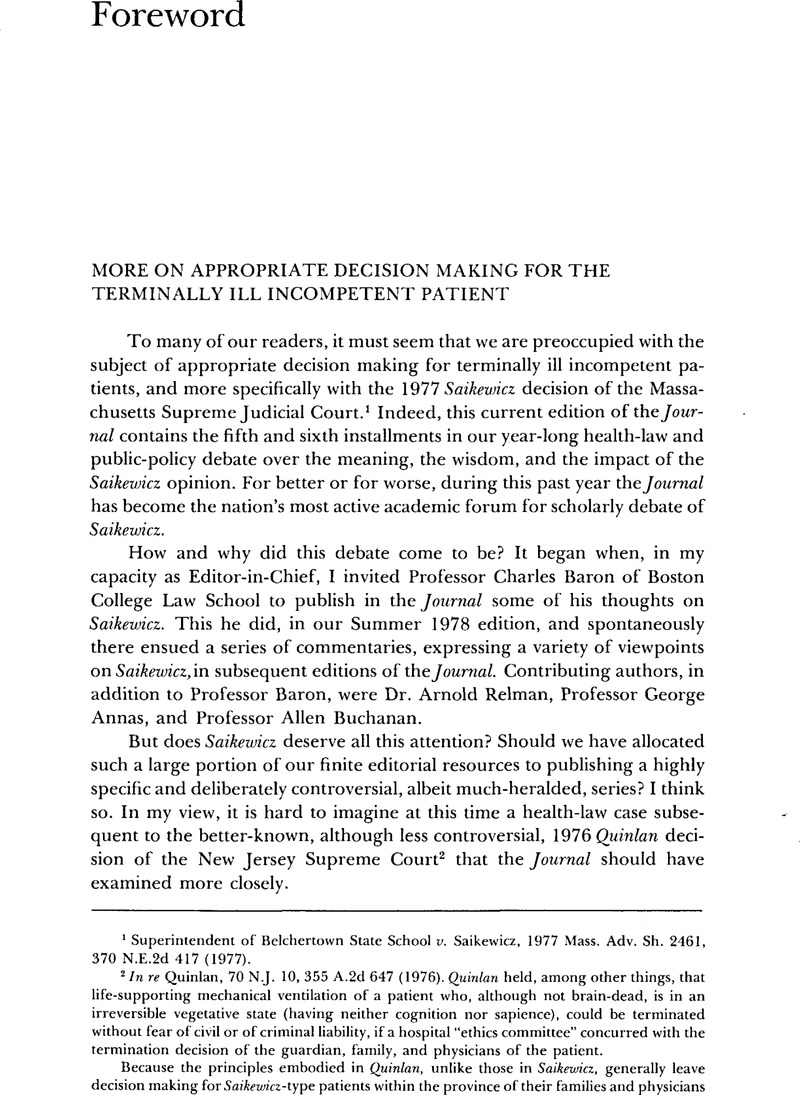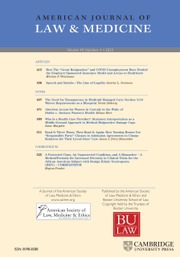Article contents
More on Appropriate Decision Making for the Terminally Ill Incompetent Patient
Published online by Cambridge University Press: 24 February 2021
Abstract

- Type
- Foreword
- Information
- Copyright
- Copyright © American Society of Law, Medicine and Ethics and Boston University 1979
References
1 Superintendent of Belchertown State School v. Saikewicz, 1977 Mass. Adv. Sh. 2461, 370 N.E.2d 417 (1977).
2 In re Quinlan, 70 N.J. 10, 355 A.2d 647 (1976). Quinlan held, among other things, that life-supporting mechanical ventilation of a patient who, although not brain-dead, is in an irreversible vegetative state (having neither cognition nor sapience), could be terminated without fear of civil or of criminal liability, if a hospital “ethics committee” concurred with the termination decision of the guardian, family, and physicians of the patient.
Because the principles embodied in Quinlan, unlike those in Saikewicz, generally leave decision making for Saikewicz-type patients within the province of their families and physicians (through so-called “ethics committees“), Quinlan is the more widely accepted of the two opinions, particularly by the medical community.
3 For example, van Till, Diagnosis of Death in Comatose Patients Under Resuscitation Treatment: A Critical Reveiw of the Harvard Report, 2 Am. J. L. & Med. 1 (1976)Google Scholar; Kaplan, Euthanasia Legislation: A Survey and a Model Act, id. at 41.
- 2
- Cited by


